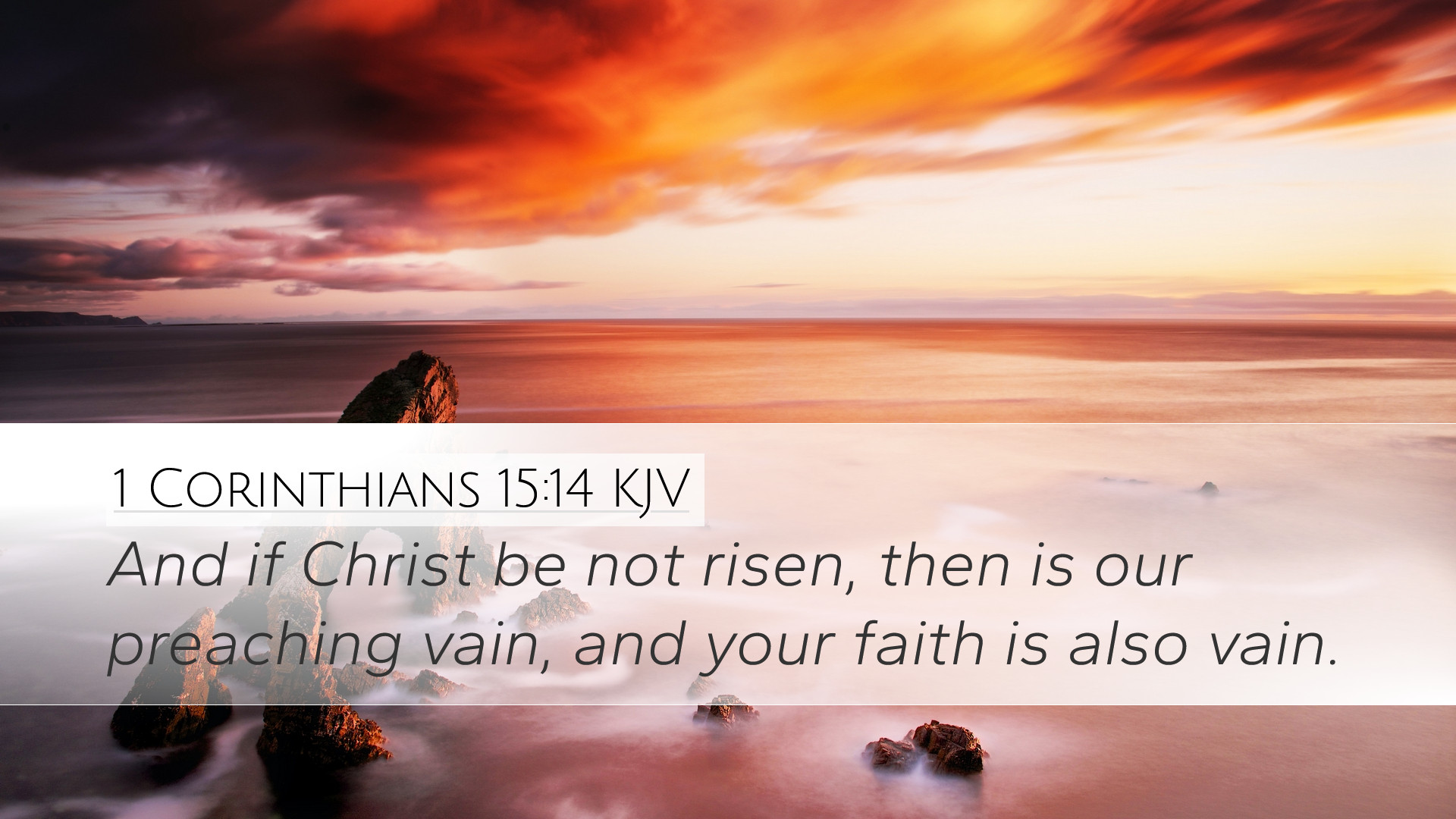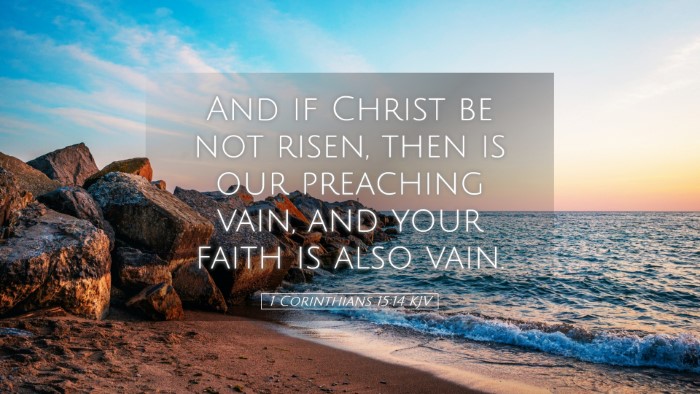1 Corinthians 15:14 Commentary
Verse: "And if Christ be not risen, then is our preaching vain, and your faith is also vain." (1 Corinthians 15:14, KJV)
Introduction
The resurrection of Christ stands at the core of Christian belief, as highlighted in Paul's first epistle to the Corinthians. In this verse, the Apostle Paul emphatically states the implications of a non-resurrected Christ. This commentary will synthesize insights from biblical scholars, including Matthew Henry, Albert Barnes, and Adam Clarke, providing a comprehensive analysis of this pivotal scripture.
Exegesis of the Text
The statement "if Christ be not risen" sets forth a conditional premise; it encapsulates the essence of Christian doctrine. Paul is engaging with a hypothetical that, if realized, would lead to devastating consequences for both the apostolic mission and the faith of believers.
The Implications of a Non-Resurrected Christ
-
Vain Preaching:
Matthew Henry emphasizes that if the resurrection were not a reality, the very preaching of the gospel would be rendered ineffective or "vain." The cornerstone of apostolic preaching is the resurrection, which validates Christ's divinity and the truth of the gospel.
-
Vain Faith:
Albert Barnes elaborates on "your faith is also vain" by stressing that the entire edifice of Christian belief rests on the factual nature of the resurrection. Should that be nullified, faith becomes misplaced—an exercise in futility. This notion serves as a piercing challenge to believers about the foundational importance of Christ's resurrection.
Theological Significance
The implications of Christ’s resurrection extend beyond mere theological assertion. Adam Clarke contends that the resurrection is crucial for several reasons:
-
Hope of Eternal Life:
The resurrection assures believers of their own resurrection and eternal life. Paul’s assertion highlights that without Christ's resurrection, the hope of resurrection for believers would be baseless.
-
Assurance of Forgiveness:
The resurrection serves as a divine affirmation of the sufficiency of Christ’s sacrifice, ensuring that sin's penalty has been fully paid. Without the resurrection, the promises of forgiveness would also be called into question.
Historical Context and Theological Reflection
In Corinth, a city steeped in philosophical thought, beliefs concerning the resurrection were contentious. Paul addresses the skeptics head-on, as per Barnes's insight, and reinforces the necessity of the resurrection in countering prevailing doubts. This historical context underscores the urgency and vigor with which Paul defends the resurrection.
The theological reflections inherent in this verse compel the church today to assess the vitality of the resurrection message in preaching and living out the Christian faith.
Conclusion
The message of 1 Corinthians 15:14 is both sobering and empowering. It serves as a stark reminder to pastors, students, theologians, and scholars alike of the significance of Christ's resurrection. As articulated by Henry, Barnes, and Clarke, the implications are vast—affecting preaching, faith, hope, and the very essence of what it means to be a follower of Christ. Thus, the resurrection is not merely a doctrinal tenet but the very heart of Christian life and witness.


